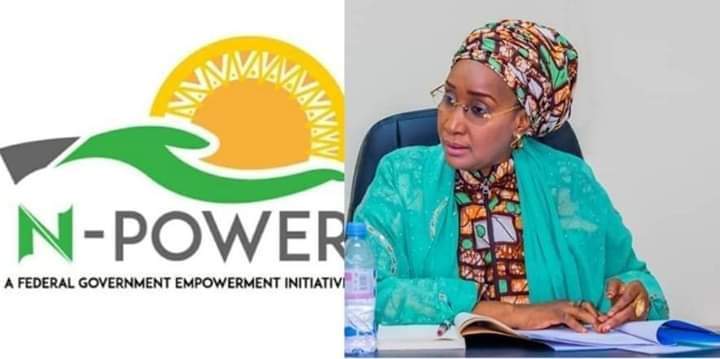The federal government has begun entrepreneurial training of 467,183 out of the 500,000 beneficiaries of the N-Power scheme captured in exited batches A and B.
The batches were exited last year after over two years to pave way for another set of beneficiaries of the National Social Investment Programme,NSIP of the government.
The trainees who are from all states of the federation, would be trained on empowerment skills with a view to accessing loans from the Central Bank of Nigeria,CBN, to establish businesses of their own.
The development was in fulfilment of the promise made by the Minister of Humanitarian Affairs, Disaster Management and Social Development,Hajia Sadiya Umar Farouq,to establish an exit programme for the N-Power beneficiaries.
Under the programme, otherwise known as NEXIT Programme, the N-Power beneficiaries are to get loans from the Central Bank of Nigeria, upon training.
Speaking at the flag-off of the NEXIM CBN Agric Business,Small and Medium Enterprises Scheme, AGSMES scheme in Abuja, Monday,the minister explained that,”The N-Power programme is key to helping young Nigerians acquire and develop life-long skills that ensure they become solution providers and entrepreneurs in their communities.”
“The N-Power programme is a critical part of the National Social Investment Programmes domiciled in the Federal Ministry of Humanitarian Affairs, Disaster Management and Social Development (FMHADMSD) and designed to achieve the National objectives of poverty reduction and job creation,”she added.
Explaining that N-Power has three core segments, namely:”N-Power Volunteer Corps – the Graduate programme;
N-Power Build – Non graduate programme and N-Power Knowledge – Which is a non-graduate programme and embodies the N-Tech Hardware, N-Tech Software and the N-Creative training programme”,she said:”Recently, more segments have been embedded into the N-Power programme such as the N-Skills which is for youth with no formal education who would be trained in different vocational skills and trades.”
According to her,”The Mobile Money Agents which are for financial inclusion of this youth segment is another great feat.”
” It has been my desire that the exited batches A and B N-Power graduate beneficiaries would not be left unattended to. In different channels, I kept on assuring these teaming youths that the Federal Ministry of Humanitarian Affairs, Disaster Management and Social Development has worked very closely with the Central Bank of Nigeria to realize this dream.
“Today marks the beginning of the fulfilment of this awaited training that will enable those beneficiaries that indicated interest to participate in the CBN empowerment programme,”she said.
Farouq expressed gratitude for the support received “from CBN towards the development of NEXIT Portal which was used by the Ministry to collate the data of the exited N-Power batches A and B beneficiaries. “
“This has been a painstaking exercise to ensure that eligible and interested beneficiaries are not left out of this laudable programme. This is quite commendable as the exercise was totally free of any political interference. At the end of it all, shortlisted beneficiaries would have a sense of fulfillment and would be satisfied of this support”,she said.
According to her: ”From available records, 467,183 applicants were submitted for the confirmation process in February this year. From the records, we identified 182,976 female and 284,191 males while 16 did not specify. 263,998 of these applicants have confirmed their availability to participate in the training programme.”
She spoke further: “For ease of coordination, this training programme would be conducted in phases. Let me also inform you that all the 36 States and FCT are participating in this long awaited NEXIT training programme.
“A total of 75,600 participants are in this first batch of the training. We will continue to train the remaining batches in no distant time.
“The Federal Ministry of Humanitarian Affairs, Disaster Management and Social Development is committed to ensuring that the strategic objectives of all the social intervention programs are harnessed to achieve the desired goals and objectives.”
